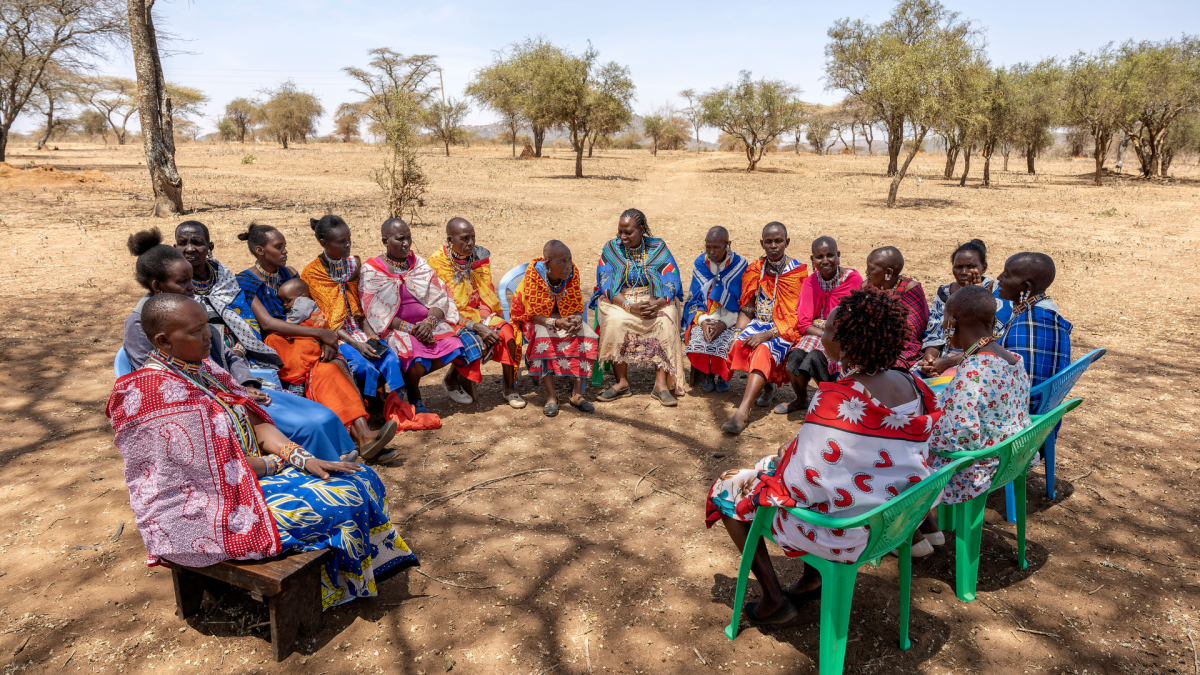Social and Economic Empowerment of women and girls
Women’s equality and empowerment (SDG 5) is one of the 17 Sustainable Development Goals, and is also integral to all dimensions of inclusive and sustainable development. Women’s and girls’ social and economic empowerment also contributes to their ability to pursue their human rights to water and sanitation. In all societies, power is not equally distributed.
Realising a just society
Economic and social empowerment puts women and girls in a stronger position and gives them the agency to make decisions that promote their own health and wellbeing, as well as that of their families and their communities. We believe that social and economic empowerment is a key factor to achieve not only gender justice, but also water and climate justice.
It also enables women and girls to ensure that water, sanitation and hygiene (WASH) services respond to their needs. For example, as their needs differ from those of men, it is important that they have a voice with regards to household expenditure on WASH. The reverse is also true: realising women’s and girls’ rights to water and sanitation increases their ability to achieve their own social and economic empowerment.
What is Social and Economic Empowerment?
For the definition of empowerment of women and girls, Simavi refers to The Royal Tropical Institute (KIT). KIT defines empowerment of women and girls as the expansion of choice and strengthening of voice through the transformation of power relations, so women and girls have more control over their lives and future. This is achieved through increasing women’s agency, ensuring equal access and control over resources and having supportive institutional structures in place.

Social Empowerment: a voice within the community
Social empowerment refers to the ability of women and girls to act individually and collectively to change social relationships and the institutions and discourses that exclude them and keep them in poverty. At home, this for instance involves the ability of women to decide and discuss with their partner whether or not to use contraceptives. Outside their home, it means that women and girls can build positive relationships, participate in social activities and decision making, without being restricted by gender norms.
Economic Empowerment: a voice on financial independence
Economic empowerment means that women have the skills and resources to improve their economic status and move out of poverty. In addition, it means that women and girls can decide on how to utilise their income and other resources and/or jointly make those decisions.
Simavi and Social & Economic Empowerment
An important aspect of social empowerment is to address prevailing gender norms and roles, in order to improve women’s and girl’s participation and position in civil, economic and social spheres. By engaging communities in dialogues, we create space to discuss and tackle limiting social and cultural norms.
This also involves public and private service providers, as access to WASH services is often restricted by entrenched social and cultural norms. In addition, our programmes work with women and girls to build their knowledge, skills and social networks and work with existing community structures to include them in decision making processes.
Simavi applies different strategies to improve women’s and girls’ access to, and control over, economic resources. For that, it’s important to start from their specific needs and priorities – thus using a Women-Centred Approach. For example, through the establishment of women’s saving and loans associations. Or, by providing women and girls with skills and opportunities to engage in income generating activities.
Where possible, we ensure these activities relate to the specific goals of the programme. For instance, setting up a business to provide access to safe water or the production, or sale of, menstrual health products and soap. We often team up with private partners or other NGOs that have specific expertise in one or more of these areas.
The above is supported by our work on lobby and advocacy that is led by our implementing partners in country. It is important that local and national policies and programmes support women’s social and economic empowerment.
Read more about our work on Social and Economic Empowerment:



